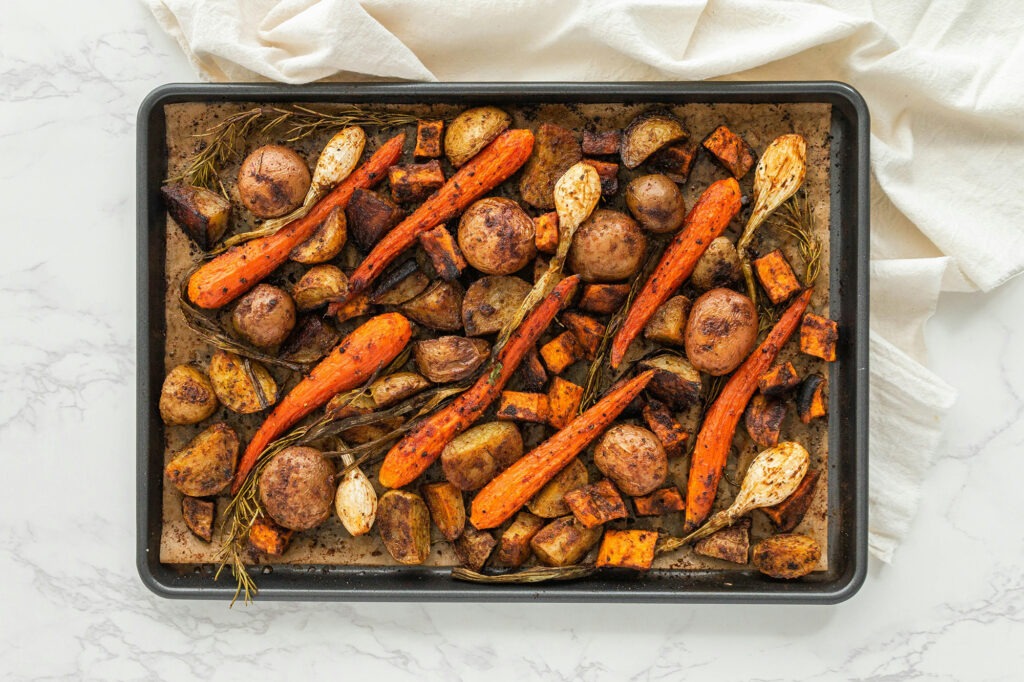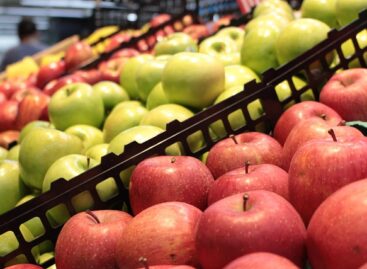This is why you should pay attention to your heart health even in autumn – tips from a dietitian
As the colder weather sets in in mid-autumn, not only nature but also our bodies are forced to adapt. The cardiovascular system is particularly sensitive to autumn changes, so it doesn’t matter what we eat, how much we exercise, and how we manage stress. Brigitta Bakk, dietician at Flora, shows you how to consciously take care of your health, from seasonal ingredients to protecting your gut flora to maintaining your daily routine.

-
Pay attention to your body’s signals
The risk of heart attack and stroke increases in the colder months, as the cold causes blood vessels to constrict and blood pressure to rise. If you experience unusual fatigue, headaches, or higher blood pressure, it is worth consulting a doctor, especially if you are older or have a chronic illness.
We can pay attention to the basics of heart protection all year round: a healthy body weight, a balanced diet, regular exercise, and avoiding alcohol and smoking. If we don’t keep these in mind, it will increase the risk in the long run. In addition, colds and flu can knock us off our feet more easily in the colder months, especially if our immune system is already weaker due to poor nutrition, stress or lack of sleep.
-
Eat seasonally and your heart will thank you
Pumpkin, beetroot, cabbage, broccoli, grapes, plums and walnuts not only add color to our plate, but also protect our heart. These autumn ingredients are rich in vitamins, minerals and fiber, help balance cholesterol levels, and protect the blood vessel walls thanks to the antioxidants they contain.
According to Bakk Brigitta, in the cooler months it is worth preparing these ingredients in casseroles or baking them in the oven – this way we can create not only filling but also heart-friendly dishes on the table. Kale, cauliflower, broccoli or eggplant are great choices, and rice can easily be replaced with bulgur, millet or buckwheat. Leftover fried vegetables can be used to make a delicious dip, cream soup or sandwich spread with a little vegetable oil or margarine, making healthy eating not only simple but also sustainable.
-
Avoid salt and saturated fats
Heart-friendly nutrition is not only important in a particular season, but also requires conscious attention all year round. It is especially worth limiting the consumption of foods high in salt, such as baked goods, canned goods, processed meats, convenience foods, cheese and chips, especially if someone has high blood pressure. Excessive salt intake raises blood pressure and increases the strain on the heart.
In terms of lipid control, i.e. keeping blood fat levels in balance, foods rich in saturated fatty acids should also be avoided. These include butter, full-fat milk, sour cream, cream, egg yolks, offal, fatty meats, sausages, salami, but also Neapolitan pastries, cake toppings, chocolates and biscuits.
Incorporate foods rich in omega-3 fatty acids into our diet, which are particularly important in the autumn period due to their anti-inflammatory and immune-boosting effects. They can be found in sea fish, walnuts, flaxseed, but also in margarines made from vegetable oils – for example, in Flora products. Regular consumption of these helps the heart function normally and the blood vessels to be more elastic.
-
Reduce stress, support intestinal flora
Persistent negative stress places a serious burden on the cardiovascular system, which is why conscious prevention is important. The DASH or Mediterranean diet, which are based on reducing salt intake, can help reduce blood pressure. Although there is no specific anti-stress diet, certain nutrients such as magnesium, omega-3 fatty acids and vitamin C can support the body’s ability to handle stress.
More and more research confirms that the health of the gut flora also affects our mood and immunity, which is why it is worth consuming fiber-rich, fermented foods, while it is important to avoid processed, sugary products and alcohol. However, managing stress does not only depend on diet. Regular exercise, meditation and other relaxation techniques also play a key role in maintaining physical and mental balance.
Related news
A fruit day doesn’t cure or sustain you – that’s why most corporate well-being programs don’t work
🎧 Hallgasd a cikket: Lejátszás Szünet Folytatás Leállítás Nyelv: Auto…
Read more >Related news
PwC Global CEO Survey: CEO confidence at a five-year low
🎧 Hallgasd a cikket: Lejátszás Szünet Folytatás Leállítás Nyelv: Auto…
Read more >The Year of the Horse – Culinary trends in 2026
🎧 Hallgasd a cikket: Lejátszás Szünet Folytatás Leállítás Nyelv: Auto…
Read more >








